News written by Rich Fiscus (February, 2008)
Written by Rich Fiscus @ 29 Feb 2008 2:37
 It's time again for my weekly Glossary updates. This week's highlights include some things you may already have on your computer, such as libavcodec and MPEG-4 encoders. If you're not already familiar with libavcodec I recommend starting there. It has become one of the cornerstones of software media players, and has even become a viable option for encoding video.
It's time again for my weekly Glossary updates. This week's highlights include some things you may already have on your computer, such as libavcodec and MPEG-4 encoders. If you're not already familiar with libavcodec I recommend starting there. It has become one of the cornerstones of software media players, and has even become a viable option for encoding video.
In an attempt to make it easier to keep Track of the various industry and special interest groups that seem to be in the news all the time I'm also adding entries for many of them to the Glossary. This week's entry, the White Spaces Coalition, is trying to develop WAN (Wide Area Network) technology that uses DTV frequencies. They're promising the capability for 80Gbps
Broadcasters are opposed to the new technology, citing concerns about interference with TV broadcasts. While this is certainly something that must be taken into account, you have to wonder if their real worry isn't the potential to deliver high quality video using white space networking.
Written by Rich Fiscus @ 28 Feb 2008 12:37
 Although they're not saying yet, it appears that Apple's strategy to meet their lofty sales goal of 10 million iPhones (from launch to the end of this year) involves looking to the business community. The company appears to be betting that they can make a serious run at consumers who might otherwise choose a Blackberry from rival Research In Motion (RIM).
Although they're not saying yet, it appears that Apple's strategy to meet their lofty sales goal of 10 million iPhones (from launch to the end of this year) involves looking to the business community. The company appears to be betting that they can make a serious run at consumers who might otherwise choose a Blackberry from rival Research In Motion (RIM).
They also appear to be banking on the popularity of the third party software that will be officially possible once a SDK is released next month. Although it's already possible to write and install software on the iPhone, it currently requires a procedure called "jailbreaking," which isn't supported (or even condoned) by Apple.
"Apple has understood the importance of local applications and they are responding to that, and it will help them sell more iPhones," said Tim Bajarin, principal analyst of Creative Strategies.
Written by Rich Fiscus @ 28 Feb 2008 12:02
 After some market tests which began last year, Redbox has announced that they'll be adding their kiosks to nearly 1,800 Walgreens stores. At present the company expects to have over 11,000 active kiosks by year's end.
After some market tests which began last year, Redbox has announced that they'll be adding their kiosks to nearly 1,800 Walgreens stores. At present the company expects to have over 11,000 active kiosks by year's end.
Redbox, which is primarily owned by Coinstar and McDonald's, is already the clear leader in the rental kiosk business. All told they already have nearly 7,000 units in use around the U.S. That's more than four times the number their closest competitor, Moviecube, has.
Although Moviecube has also announced big plans for expansion, with Redbox's aggressive growth continuing from last year, when they tripled the number of kiosks they had deployed, Redbox looks to be the clear market leader for the forseeable future.
Written by Rich Fiscus @ 27 Feb 2008 12:23
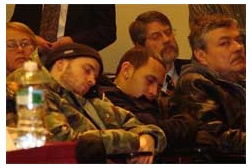 You have to give it to Comcast. They're nothing if not consistent. When they've been asked to reveal specifics of their controversial "network management" techniques that have BitTorrent using customers up in arms they really didn't want to talk about it. Now, as if to emphasize that point, they've found a way to control attendance of a FCC hearing that was open to the public.
You have to give it to Comcast. They're nothing if not consistent. When they've been asked to reveal specifics of their controversial "network management" techniques that have BitTorrent using customers up in arms they really didn't want to talk about it. Now, as if to emphasize that point, they've found a way to control attendance of a FCC hearing that was open to the public.
In order to make sure they were playing to a more sympathetic audience, Comcast paid people off the street to attend, and even bused them to Harvard Law School. Once inside these people took up seats that would otherwise have gone to some of the people denied entry due to limited space.
Unfortunately for Comcast, representatives of an organization called Save the Internet were also there, and had their cameras handy. They took pictures of a Comcast employee handing out papers to the people they bused in. Later, some of the same people were photographed sleeping during the meeting. According to Save the Internet's website, "They arrived en masse some 90 minutes before the hearing began and occupied almost every available seat, upon which many promptly fell asleep."
Read more...
Written by Rich Fiscus @ 26 Feb 2008 11:17
 According to data from the NPD Group, after last year's increase in legal online music sales iTunes has become the number two music retailer in the country. During 2007 only Wal-Mart outperformed the online store.
According to data from the NPD Group, after last year's increase in legal online music sales iTunes has become the number two music retailer in the country. During 2007 only Wal-Mart outperformed the online store.
"The continued growth in legal download sites is encouraging, yet the industry struggles to improve the value of each digital customer," said NPD analyst Russ Crupnick in a statement. "With so many baby boomers and gen-Xers entering the market, there are certainly opportunities to sell more digital albums, promote older catalog titles, or create bundles that will raise revenues. In the near term that’s going to be the best means available to narrow the gap on dwindling CD revenues."
Unfortunately the news wasn't as good for labels as it was for Apple. The increase download revenue didn't offset the continuing decline in CD sales. No doubt part of the problem is that downloads are typically sold one or two songs at a time, versus an entire CD. According to NPD, around a million people stopped buying CDs last year.
Read more...
Written by Rich Fiscus @ 26 Feb 2008 1:29
 DivX, Inc., developers of the MPEG-4 ASP Codec of the same name, have announced they'll be shutting down their Stage6 video sharing service and website. Despite its popularity, or more perhaps more accurately because of it, DivX has been unable to develop a business model capable of turning a profit. As of February 28 it will cease operation.
DivX, Inc., developers of the MPEG-4 ASP Codec of the same name, have announced they'll be shutting down their Stage6 video sharing service and website. Despite its popularity, or more perhaps more accurately because of it, DivX has been unable to develop a business model capable of turning a profit. As of February 28 it will cease operation.
Unlike sites such as YouTube and its clones, Stage6 was intended to provide high quality video, and it even includes a download feature that allows you to save videos to your hard drive for viewing later. However, that quality comes at no small cost in Bandwidth or manpower. After trying unsuccessfully to find a way to spin-off Stage6 as an independent business, and lacking an interested buyer, The decision was made to shut the service down.
In a message on the Stage6 website, a DivX representative summed it up, saying "the continued operation of Stage6 is a very expensive enterprise that requires an enormous amount of attention and resources that we are not in a position to continue to provide. There are a lot of other details involved, but at the end of the day it’s really as simple as that."
Read more...
Written by Rich Fiscus @ 25 Feb 2008 11:24
 Universal Music Netherlands has struck a deal with Fabchannel allowing the webcaster, which offers live shows from two clubs in Amsterdam, to offer streaming performances from Universal artists in a no-charge (ad supported) format.
Universal Music Netherlands has struck a deal with Fabchannel allowing the webcaster, which offers live shows from two clubs in Amsterdam, to offer streaming performances from Universal artists in a no-charge (ad supported) format.
Although the deal gives artists the choice to decline to have their shows streamed, Fabchannel CEO Justin Kniest says only a couple of them have taken advantage of this provision. While the deal is with Universal Music Group's Netherlands division, the streams will be available to viewers worldwide.
Fabchannel will also be able to use the recordings for other purposes, such as allowing them to be added to blogs or social networking homepages. Universal will also get access to the recordings, as well as the right to sell them from their own site.
Justin Kniest said "This is a significant step forward for Fabchannel. The quality of Universal Music artists contributes to our goal of offering our viewers the hottest and broadest selection of live music. Fabchannel has pioneered a way to bring fans, bands and brands together in a way that's good for everyone."
Read more...
Written by Rich Fiscus @ 25 Feb 2008 10:45
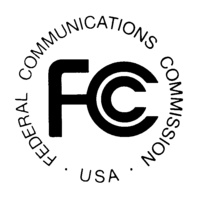 FCC Chairman Kevin Martin said today that "The commission is ready, willing and able to step in if necessary to correct any practices that are ongoing today." He made the statement at today's hearing at Harvard Law School's Berkman Center for Internet and Society.
FCC Chairman Kevin Martin said today that "The commission is ready, willing and able to step in if necessary to correct any practices that are ongoing today." He made the statement at today's hearing at Harvard Law School's Berkman Center for Internet and Society.
Although the hearing was officially a general inquiring into network management practices of broadband internet providers, it was prompted by last year's revelation that Comcast is "managing" their network by disconnecting BitTorrent transfers from customer computers.
Based on statements today the cable giant likely has more to explain than why their practice of inserting their own data into BitTorrent uploads originating on their network telling the computers on each end that the other has ended the connection.
Of course that question will certainly be on the list, but Martin hinted at another issue that may be harder for Comcast officials to explain away. "Consumers need to know if and how network management practices distinguish between different applications, so they can configure their own applications and systems properly," he said.
Read more...
Written by Rich Fiscus @ 25 Feb 2008 9:55
 ABC executives have managed to convince themselves that viewers really don't care about fast forwarding, or at least that's the official company line, as voiced by Anne Sweeney, the president of the Disney-ABC television group. She was speaking about a new Video On Demand venture the Disney owned network is initiating with the cooperation of affiliate stations and cable carrier Cox Communications which will disable the fast forward capabilities normally associated with on demand offerings.
ABC executives have managed to convince themselves that viewers really don't care about fast forwarding, or at least that's the official company line, as voiced by Anne Sweeney, the president of the Disney-ABC television group. She was speaking about a new Video On Demand venture the Disney owned network is initiating with the cooperation of affiliate stations and cable carrier Cox Communications which will disable the fast forward capabilities normally associated with on demand offerings.
Sweeney told the New York Times “You don’t need TiVo if you have fast-forward-disabled video on demand. It gives you the same opportunity to catch up to your favorite shows.” Perhaps no one has told her that Americans would prefer to spend the 25% - 30% of each show's running time that's devoted to commercials doing something more interesting than watching the same commercials over and over.
The cluelessness of the executives who made this decision was summed up well by Ray Cole. He's the president of Citadel Communications, owner of three ABC affiliates, who said “As network and affiliates, we both have an interest in slowing down the explosive growth of DVRs.”
Read more...
Written by Rich Fiscus @ 25 Feb 2008 4:00
 With the increase in new content at Afterdawn over the last year, we've had a hard time keeping you informed of the resources we have available in our Guides section. In order to let you know what guides are available I'll be writing a weekly update telling you what new guides have been added, and occasionally talking about existing content. To kick things off here are some highlights of what we have so far this year.
With the increase in new content at Afterdawn over the last year, we've had a hard time keeping you informed of the resources we have available in our Guides section. In order to let you know what guides are available I'll be writing a weekly update telling you what new guides have been added, and occasionally talking about existing content. To kick things off here are some highlights of what we have so far this year.
We've added several guides aimed at helping Xbox 360 and PS3 owners playback video from various sources on their consoles. Since many containers aren't supported on the Xbox 360 these guides focus primarily on moving the video to supported containers like MP4 and AVI. Our lone PS3 entry gives instructions for moving the contents of MKV (Matroska) files to VOBs that can are supported by that console.
Multimedia playback with Xbox 360
Ever since the Fall update (2007) for the Xbox 360 console, support for a wider variety of video content has been added without the need of
Windows Media Center Edition. This article discusses some of the Xbox 360's multimedia capabilities as of January 2008, and shows some brief results we had with the console while trying to play back video files of all types with many different streams and settings. This is not a guide for
Streaming and it does not involve the use of MCE.... (
Read More)
Read more...
Written by Rich Fiscus @ 25 Feb 2008 1:34
 As flat panel TV sales continue to increase and LCD continues to grab an increasing amount of market share, some manufacturers have shifted their focus away from plasma HDTVs. One company that hasn't wavered in their support for plasma technology is Pioneer. Less than two months ago, at CES, the company's commitment to plasma was on display in the form of new displays capable of near perfect reproduction of blacks.
As flat panel TV sales continue to increase and LCD continues to grab an increasing amount of market share, some manufacturers have shifted their focus away from plasma HDTVs. One company that hasn't wavered in their support for plasma technology is Pioneer. Less than two months ago, at CES, the company's commitment to plasma was on display in the form of new displays capable of near perfect reproduction of blacks.
Despite their commitment though, they're feeling the same consumer pressure for lower prices which has already forced electronics giant Matsushita (Panasonic) to add larger LCD displays to their HDTV lineup. A Japanese newspaper is now reporting that Pioneer is hoping to reduce production costs on HDTVs 42 inches and smaller by building them with panels manufactured by Matsushita and Hitachi. They're reporting that production of these panels at Pioneer's own plant in southern Japan.
Read more...
Written by Rich Fiscus @ 25 Feb 2008 12:56
 If you'd like a ringside seat to a FCC hearing on ISP network management and happen to be in the Boston area on Monday you're in luck. There's a hearing scheduled for 11:00 in the morning at Harvard Law School. It's open to the public and will be attended by all of the FCC commissioners.
If you'd like a ringside seat to a FCC hearing on ISP network management and happen to be in the Boston area on Monday you're in luck. There's a hearing scheduled for 11:00 in the morning at Harvard Law School. It's open to the public and will be attended by all of the FCC commissioners.
Assuming you haven't spent the last several months on the International Space Station you're probably aware that Comcast, the largest U.S. cable provider, is being investigated for interfering with certain traffic, primarily BitTorrent related, from customers' computers. Although they claim the "network management" that's causing the problems with BitTorrent is compliant with FCC regulations and that they have nothing to hide, it's difficult to reconcile that with their public comments prior to the FCC investigation, in which they were clearly avoiding the issue entirely. In fact until the FCC got involved no Comcast representative was willing to even confirm what had been proven by both the Associated Press and Electronic Frontier Foundation (EFF).
The issue of network management is at the heart of Monday's hearing. Specifically, the commissioners are looking for answers about what is or isn't "reasonable," which is how Comcast describes their practice of forging reset packets to fool customers' computers into thinking a BitTorrent connection has ended by the computer at the other end.
Read more...
Written by Rich Fiscus @ 24 Feb 2008 12:40
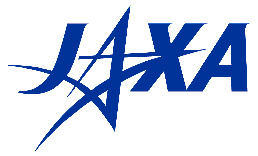 Japan may have taken a long time getting into the space race, but they're quickly making up for lost time. Powered by a rocket designed and built in Japan, they've launched a new satellite which they hope will be able to provide digital television (DTV) and high speed internet to remote areas of the country, as well as serving customers in other parts of Southeast Asia.
Japan may have taken a long time getting into the space race, but they're quickly making up for lost time. Powered by a rocket designed and built in Japan, they've launched a new satellite which they hope will be able to provide digital television (DTV) and high speed internet to remote areas of the country, as well as serving customers in other parts of Southeast Asia.
The satellite called Kizuna was developed by the Japan Aerospace Exploration Agency (JAXA), the National Institute of Information and Communication Technology, and Mitsubishi. It can reportedly transmit data at up to 1.2Gbps (Gigabits per second), including both internet and DTV streams.
In addition to the fact that launching a satellite is a relatively quick, if still expensive, way to deploy infrrastructer across a larger area than would be possible with physical cables. For Japan, where earthquakes are a real threat, satellite connections also have the advantage that they will be unaffected in the case of any natural disaster.
"The infrastructure on the ground may not withstand a major earthquake, and remote areas may not have any access to optic-fiber networks," one official said.
Written by Rich Fiscus @ 23 Feb 2008 11:02
 We reported yesterday that CBS will be making older TV series avaiable for streaming online. At the same time, NBC Universal is making a similar, but somewhat bigger move. While CBS appears to simply be looking through their vaults to find the most marketable titles for a general audience, NBC is taking a slightly different tack.
We reported yesterday that CBS will be making older TV series avaiable for streaming online. At the same time, NBC Universal is making a similar, but somewhat bigger move. While CBS appears to simply be looking through their vaults to find the most marketable titles for a general audience, NBC is taking a slightly different tack.
Not only are NBC's selection more varied than those offered by CBS, they're also spread across websites for a number of different channels they own. The sites for NBC, the Sci Fi Channel, Chiller, and the Sleuth Channel are all getting shows ranging from The "A-Team" and "Miami Vice" to "Kojak" and "Night Gallery." Each channel's site will offer a different selection based on its programming.
Here's the reported lineup for each website. As with most full TV shows offered for streaming from a major network they're free, but require yot to watch a short advertisement.
NBC.com: "The A-Team"; "Emergency"; "Night Gallery"; "The Alfred Hitchcock Hour"; "Miami Vice"; "Battlestar Galactica" (1978); and "Buck Rogers."
Read more...
Written by Rich Fiscus @ 23 Feb 2008 4:14
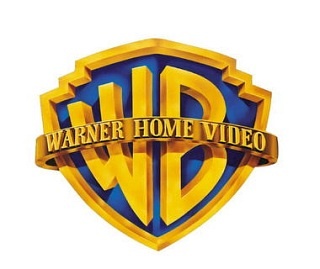 With new technology and ways to deliver video being introduced at breakneck speed, one thing most entertainment executives will admit to is that nobody knows anything for sure. To date no one has been able to reach any definite conclusions about how consumers actually respond to the range of offerings from Streaming TV shows to video on game consoles. Warner Bros. has decided it's time to fill the void, and has put together a consumer research facility to find out for themselves.
With new technology and ways to deliver video being introduced at breakneck speed, one thing most entertainment executives will admit to is that nobody knows anything for sure. To date no one has been able to reach any definite conclusions about how consumers actually respond to the range of offerings from Streaming TV shows to video on game consoles. Warner Bros. has decided it's time to fill the void, and has put together a consumer research facility to find out for themselves.
Warner has put together a media Center that includes game consoles, portable media players, computers of different types, and even DirecTV. They plan to bring in consumers and give them access to content in various forms to see how they react to it. They'll be Left alone to use Video On Demand, web content, and portable media while cameras monitor their activities.
"We're not operating in a vacuum anymore because of this center," Bruce K. Rosenblum, the executive vice president in charge of the operation told CNET News.com on Thursday. "We want to get smarter and understand these technologies a bit better. Warner Bros can't just assume about the deals we do. I think it's important that Warner knows the experience."
Read more...
Written by Rich Fiscus @ 23 Feb 2008 3:54
 Visitors to the American CBS website are now able to stream not just a current shows on the network, but also a selection of classic shows including the first season of 'MacGyver,' 'Melrose Place' and 'Hawaii Five-0', the first two seasons of 'The Twilight Zone', and all three seasons of the original 'Star Trek'. While it's not the first time older TV shows have been available for Streaming, they've generally been distributed by third parties like Joost or the NBC and News Corp. owned Hulu.
Visitors to the American CBS website are now able to stream not just a current shows on the network, but also a selection of classic shows including the first season of 'MacGyver,' 'Melrose Place' and 'Hawaii Five-0', the first two seasons of 'The Twilight Zone', and all three seasons of the original 'Star Trek'. While it's not the first time older TV shows have been available for Streaming, they've generally been distributed by third parties like Joost or the NBC and News Corp. owned Hulu.
The move seems to make particular sense for CBS. Due to the terms of their split with former corporate parent Viacom, CBS has a particularly large catalog of TV titles. With the rising popularity of streaming video for more recent programming it only makes sense that they'd want to make it part of their online identity.
In order to watch the shows online you'll need to have the latest version of Flash installed. You'll also be required to watch a 15 or 30 second commercial before each episode.
In addition to the episodes you'll also find links to sites ranging from TV.com to Wikipedia where information about particular series can be located. Unfortunately there doesn't appear to be any option for full screen viewing as of now.
Read more...
Written by Rich Fiscus @ 23 Feb 2008 3:45
 It turns out the British government isn't actually considering a three-strikes plan for dealing with internet pirates. According to Andy Burnham, culture secretary, suggestions to force ISP disconnection of repeat copyright violators was never in the proposal. But don't start thinking British ISPs are off the hook for their customers' piracy though. The actual recommendation before Parliament suggests a deadline of April, 2009 before the government would step in if a significant decrease in online piracy in the country hasn't been realized.
It turns out the British government isn't actually considering a three-strikes plan for dealing with internet pirates. According to Andy Burnham, culture secretary, suggestions to force ISP disconnection of repeat copyright violators was never in the proposal. But don't start thinking British ISPs are off the hook for their customers' piracy though. The actual recommendation before Parliament suggests a deadline of April, 2009 before the government would step in if a significant decrease in online piracy in the country hasn't been realized.
For the same reason British ISPs are saying they can't comply with the government's request though, it will be problematic at best to write legislation that would allow ISPs to inspect all the packets going to and coming from customers because of the European Union's strict copyright laws. In fact, despite lawmakers' assertions that such legislation will certainly come if they don't feel ISPs are doing their jobs, the people who would be responsible for writing it don't even seem convinced it can be done. They cite “difficult legal issues” as the problem.
Read more...
Written by Rich Fiscus @ 22 Feb 2008 12:00
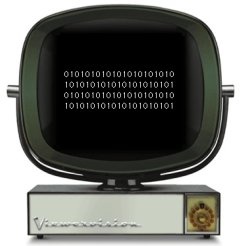 According to backers of controversial new devices that would make use of the so-called "white spaces" between DTV broadcasts for wireless networking, FCC testing of their latest submission isn't the complete failure that's been reported. Although it's true that the first device, which was tested many months ago, did cause interference with licensed frequencies due to a malfunction, a report from the National Association of Broadcasters (NAB) apparently exxagerated the problems with the new device.
According to backers of controversial new devices that would make use of the so-called "white spaces" between DTV broadcasts for wireless networking, FCC testing of their latest submission isn't the complete failure that's been reported. Although it's true that the first device, which was tested many months ago, did cause interference with licensed frequencies due to a malfunction, a report from the National Association of Broadcasters (NAB) apparently exxagerated the problems with the new device.
In fact, according to Ed Thomas of the White Space Coalition the new device being tested has indeed failed, but not in terms of the test. Rather it's had a power failure that has halted testing, but he says at no time did it interfere with surrounding frequencies.
Thomas, during a press briefing, said the NAB was engaged in "rhetoric" designed to complicate the FCC's device testing."Let this be based on science, not politics," Thomas said of the ongoing testing at the FCC. "Let the facts prevail."
Written by Rich Fiscus @ 21 Feb 2008 11:18
 the Japan Electronics and Information Technology Association (JEITA) released a forecast on Thursday suggesting that annual sales of LCD TVs will likely reach 155 million units by 2012. In 2007 there were a record 74.8 million LCD models sold.
the Japan Electronics and Information Technology Association (JEITA) released a forecast on Thursday suggesting that annual sales of LCD TVs will likely reach 155 million units by 2012. In 2007 there were a record 74.8 million LCD models sold.
According to to a JEITA spokesman, the report takes into account anticipated sales from 51 nations, which represents all the countries the organization expects to have a significant impact on sales overy the next five years.
Although they're also anticipating improved demand for plasma, the report only sees it as a 25 million unit per year business, which is actually more of an increase percentage-wise, but obviously not as bright a future as major plasma vendors like Matsushita and Pioneer would like.
Written by Rich Fiscus @ 21 Feb 2008 10:57
 Pretend you're a representative for the RIAA and you're tired of taking on file sharers in court, and of course as always you're looking to make your problems somebody else's responsibility. So far your attempts to get additional criminal provisions to make those people prosecutors' problem have failed. So what's your next move? You might put together a presentation telling those same prosecutors that the music pirates you've been taking to court happen to also be crack dealers.
Pretend you're a representative for the RIAA and you're tired of taking on file sharers in court, and of course as always you're looking to make your problems somebody else's responsibility. So far your attempts to get additional criminal provisions to make those people prosecutors' problem have failed. So what's your next move? You might put together a presentation telling those same prosecutors that the music pirates you've been taking to court happen to also be crack dealers.
Although it sounds like the plot you might expect to see written during the writer's strike, it turns out that this is exactly what RIAA lawyers have done. In an attempt to show prosecutors the value of piracy charges for going after dangerous criminals for other offenses the RIAA has produced a video in association with the National District Attorneys Association where RIAA representative Frank Walters says "When you buy a CD, would you like it with or without—the with is enclosing a piece of crack or whatever the case may be."
Read more...
Written by Rich Fiscus @ 21 Feb 2008 7:27
 Once again it's time for my weekly list of Glossary updates. Since I've spent the majority of the last week working on some guides for processing captured video I haven't been able to spend as much time on the Glossary. Hopefully what I have been able to get done will be helpful though.
Once again it's time for my weekly list of Glossary updates. Since I've spent the majority of the last week working on some guides for processing captured video I haven't been able to spend as much time on the Glossary. Hopefully what I have been able to get done will be helpful though.
Written by Rich Fiscus @ 21 Feb 2008 6:55
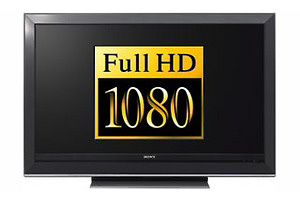 Sales of LCD televisions have hit a milestone, becoming the number one television technology. In the fourth quarter of 2007, for the first time ever, more LCD TVs were sold than CRT models according to market analysts at DisplaySearch. Compared to CRT televisions, which managed a 46% market share in the 3 months of the year, LCD TVs accounted for a 47% share.
Sales of LCD televisions have hit a milestone, becoming the number one television technology. In the fourth quarter of 2007, for the first time ever, more LCD TVs were sold than CRT models according to market analysts at DisplaySearch. Compared to CRT televisions, which managed a 46% market share in the 3 months of the year, LCD TVs accounted for a 47% share.
It looks like at least part of the boost came from 1080p models, which saw an increase of nearly 300% for the year, and accounted for more than 15% all LCD units sold and 60% of those with screen sizes larger than 40 inches in the last half of last year. Nearly 80 million LCDs were reportedly sold during all of last year.
Written by Rich Fiscus @ 19 Feb 2008 11:37
 The New Release (TNR), a Houston-based company, plans to add 1,000 of their Moviecube DVD rental kiosks in North America by the end of 2008. Specifically the kiosks are going to Canada, where they'll be installed in Loblaws grocery stores.
The New Release (TNR), a Houston-based company, plans to add 1,000 of their Moviecube DVD rental kiosks in North America by the end of 2008. Specifically the kiosks are going to Canada, where they'll be installed in Loblaws grocery stores.
TNR's move was spurred, at least in part, by an influx of cash from a venture capital firm. They're second only to Redbox in the number of rental kiosks currently in service. Redbox's kiosk offerings include many found at parent company McDonald's restaurant locations.
“Expanding into Canada, where movie rental customers have shown a veracious appetite for DVD rentals, is a much anticipated move for us,” said Tim Belton, chief executive officer of TNR, in a statement.
Written by Rich Fiscus @ 19 Feb 2008 11:09
 San Francisco based doubleTwist launched a new service today for transferring digital media between a variety of devices, including computers, portable media players, and mobile phones. The software starts with the basic information to interact with different devices. When you connect a supported media player, media player, or mobile phone to your computer, software called doubleTwist Desktop can retrieve whatever files you'd like, as well as transferring media files from your computer to the device.
San Francisco based doubleTwist launched a new service today for transferring digital media between a variety of devices, including computers, portable media players, and mobile phones. The software starts with the basic information to interact with different devices. When you connect a supported media player, media player, or mobile phone to your computer, software called doubleTwist Desktop can retrieve whatever files you'd like, as well as transferring media files from your computer to the device.
The key to the software is the information its programmed with regarding each supported device. With so many variations on media formats it must know the capabilities and limitations of each device to ensure it's only supplying files that can be played. Likewise, it must know how to query for new media and transfer both to and from your computer. It knows so you don't have to.
Jon Lech Johansen, the company's co-founder and Chief Technical Officer, says “We’ve built a format agnostic solution that handles the complexity of file and device compatibility so consumers don’t have to.” You may know Johansen better as "DVD Jon," who became famous at the age of 16 for distributing the famous DeCSS code, which is used to this day in DVD ripping tools.
Read more...
Written by Rich Fiscus @ 19 Feb 2008 12:22
 Anyone who read the IFPI's annual report on the state of the music industry when it was released in January would have already been aware that their stated goal for this year was to hold ISPs responsible for copyright infringement taking place on their networks. If you're not familiar with the IFPI, they're a international trade and lobbying organization representing all the major labels, plus a wide variety of smaller ones as well. If you're not familiar with their intentions to force ISPs to take responsibility for copyright enforcement all you have to do is look at the proposals in France, the U.K., and now Australia, which would do exactly that via so-called "three strikes" laws.
Anyone who read the IFPI's annual report on the state of the music industry when it was released in January would have already been aware that their stated goal for this year was to hold ISPs responsible for copyright infringement taking place on their networks. If you're not familiar with the IFPI, they're a international trade and lobbying organization representing all the major labels, plus a wide variety of smaller ones as well. If you're not familiar with their intentions to force ISPs to take responsibility for copyright enforcement all you have to do is look at the proposals in France, the U.K., and now Australia, which would do exactly that via so-called "three strikes" laws.
Chief executive of Australia's National Internet Industry Association, Peter Corones, will be meeting with Communications Minister Stephen Conroy this week to discuss ISPs' concerns over the proposed new law. While he hasn't laid out any specifics, he did say "Internet service providers are not the enforcers of copyright," calling them instead "a mere conduit" to reach the internet.
Read more...
Written by Rich Fiscus @ 18 Feb 2008 11:58
 It was only a matter of time before the BitTorrent community decided to take on the "network management" practices of ISPs like Comcast. According to TorrentFreak that's exactly what a small group of developers is doing.
It was only a matter of time before the BitTorrent community decided to take on the "network management" practices of ISPs like Comcast. According to TorrentFreak that's exactly what a small group of developers is doing.
They're working to implement what's being termed as Peer List Obfuscation, referring to its goal of hiding the list of peers returned by a torrent Tracker when queried by a client. This list is apparently used by Comcast's Sandvine network management system to locate BitTorrent traffic in order to falsify reset packets, telling a client uploading a particular file that the computer on the end closed the connection. In reality the message comes from Comcast, and is reportedly used to shut down any file being uploaded using BitTorrent without a corresponding download.
Ironically, if this project is a success it will mean not only that ISP's like Comcast won't be able to shut down most BitTorrent traffic, but also that they'll end up with even more traffic due to the overhead from encryption.
Written by Rich Fiscus @ 18 Feb 2008 12:58
 Much like songwriter and Congressman Sonny Bono did in the U.S. several years ago, EU Commissioner Charlie McCreevy is championing an extension to copyright terms. Not surprisingly his stated goal is much the same as Bono's was - to protect artists from the world the rest of us live in where you have to plan for your own retirement.
Much like songwriter and Congressman Sonny Bono did in the U.S. several years ago, EU Commissioner Charlie McCreevy is championing an extension to copyright terms. Not surprisingly his stated goal is much the same as Bono's was - to protect artists from the world the rest of us live in where you have to plan for your own retirement.
Mcreevy says "If nothing is done, thousands of European performers who recorded in the late 1950s and 1960s will lose all of their airplay royalties over the next ten years." This is similar to statements from a variety of recording industry insiders when the UK decided not to make such a change to their copyright terms last year.
The thing is, if the reward is actually intended to pay artists the 95 year copyright term doesn't seem to make much sense. Let's assume you write a song when you're 10 years old. In order for a 95 year term to make a difference to you it would require that you live to be 105. Additionally, if that one song (or album) and its royalties are your only source of income you have a lot bigger problems than copyright terms.
On the other hand, if you're a record label that continues to own works long after the artists are gone you're guaranteed to make money on songs for decades.
Written by Rich Fiscus @ 17 Feb 2008 9:36
 If you live in the U.S. and have a TV with only an old fashioned analog TV you have just a year before your TV will no longer be able to receive OTA (over the air) broadcasts. Although that may seem like a long way off, there are a number of reasons you should be gettting ready as soon as possible. If you already receive your television programming through a cable or satellite service there won't be anything to worry about. At the same time, all us households qualify for two $40 vouchers, which will at least cover most of the cost of a digital to analog converter, so there's really no good reason not to go ahead and get one (or two).
If you live in the U.S. and have a TV with only an old fashioned analog TV you have just a year before your TV will no longer be able to receive OTA (over the air) broadcasts. Although that may seem like a long way off, there are a number of reasons you should be gettting ready as soon as possible. If you already receive your television programming through a cable or satellite service there won't be anything to worry about. At the same time, all us households qualify for two $40 vouchers, which will at least cover most of the cost of a digital to analog converter, so there's really no good reason not to go ahead and get one (or two).
How to know if you're affected
Just because you have an analog TV doesn't mean you don't have a digital tuner. In fact, if you've bought it within the last two years it may have the necessary ATSC (digital) tuner in addition to the standard NTSC (analog) one. If it's less than a year old it's almost guaranteed to include ATSC tuning. If you're not sure you should look through the TVs manual or manufacturer's website to find out for sure. If it has an ATSC tuner you already have everything you need for DTV. If not, keep reading.
Read more...
Written by Rich Fiscus @ 16 Feb 2008 10:29
 The Super Bowl is perhaps the best known advertising spectacle in the world, but it's not just advertisers who can benefit from increased sales after the big game. Tom Petty and the Heartbreakers saw a huge increase in sales of their back catalog after being featured in the halftime show.
The Super Bowl is perhaps the best known advertising spectacle in the world, but it's not just advertisers who can benefit from increased sales after the big game. Tom Petty and the Heartbreakers saw a huge increase in sales of their back catalog after being featured in the halftime show.
While viewers were waiting for a chance to see the latest Madison Avenue efforts on Super Bowl Sunday they were bombarded with reminders that The Heartbreakers would be playing at halftime, which was already fueling sales.
Although the spike in sales isn't particularly notable, what makes it interesting is the job Universal Music Group (UMG) did turning the free publicity into online sales. "A huge part of our marketing was online-based," executive vice president/general manager of Universal Music Enterprises Mike Davis said. "With big television events, the online aspect is so important because people can see (the performance) happen onscreen and then immediately react and buy it online. With so much music being bought online now anyway, it's an easy bull's-eye to market to."
Read more...
Written by Rich Fiscus @ 16 Feb 2008 10:01
 Reuters is reporting that a source within Toshiba is confirming the company is planning to drop HD DVD, and is currently in the final stages of working out their exit strategy, although the decision isn't official yet.
Reuters is reporting that a source within Toshiba is confirming the company is planning to drop HD DVD, and is currently in the final stages of working out their exit strategy, although the decision isn't official yet.
Although there has been a lot of speculation about how long Toshiba would be willing to stand behind the technology which has already cost them a lot of money to develop and promote, after Warner Bros. was convinced to back Blu-ray and drop HD DVD production later this year.
Although Toshiba and studio partners Paramount and Universal have very publicly stated that they have no plans to give up on HD DVD yet, a series of defeats, including this week's announcements from both Netflix and Wal-Mart that they'll be dropping the format to focus on Blu-ray.
Written by Rich Fiscus @ 15 Feb 2008 11:46
 When analog TV broadcasts are shut off for good in the U.S. in almost exactly 1 year (Februrary 17, 2009) some people with analog televisions will be using their new DTV converters, while others will find themselves suddenly without reception entirely. A third group, though, will be avoiding the problem altogether and just signing up for Cable Television service.
When analog TV broadcasts are shut off for good in the U.S. in almost exactly 1 year (Februrary 17, 2009) some people with analog televisions will be using their new DTV converters, while others will find themselves suddenly without reception entirely. A third group, though, will be avoiding the problem altogether and just signing up for Cable Television service.
According to a report from Sanford C. Bernstein & Co. on Friday, around 1.4 million households will probably switch to pay TV service as a result of the digital TV transition - enough to significantly lift the growth rates for the cable industry in 2009, compared to recent years.
Watchdog group Consumers Union is keeping an eye on cable and satellite providers to ensure they don't try to boost subscriptions by spreading misinformation about the transition. So far no such tricks have been spotted, but senior counsel Chris Murray says "We want the folks in the marketplace to know that we're watching."
Read more...
Written by Rich Fiscus @ 15 Feb 2008 11:21
 If you're one of the more than 2 million Americans who have already applied for government vouchers for digital to analog DTV converter boxes you may be getting it as early as next week, which is when the first of them will be mailed.
If you're one of the more than 2 million Americans who have already applied for government vouchers for digital to analog DTV converter boxes you may be getting it as early as next week, which is when the first of them will be mailed.
All U.S. households are eligible for the vouchers, which cover the first $40 of a qualifying DTV receiver. You can find the full list of converters in our Hardware section. Although most of the boxes are expected to cost more than $40, although satellite receiver and DVR manufacturer Echostar has announced they'll be selling one model at a loss to ensure it costs no more than the voucher's value.
Converters have already started appearing on retailers' shelves. Although the last analog TV signals aren't scheduled to be shut off for another year, you should make sure to get yours well in advance of the deadline to avoid the rush.
Read more...
Written by Rich Fiscus @ 14 Feb 2008 10:36
 Brick and mortar retailer Borders is hoping to be competitive with online stores like Amazon.com by introducing a new type of store designed to appeal to consumers accustomed to getting what they want when they want it. In addition to the standard assortment of books, CDs, DVDs, and other traditional media, the stores will feature a Digital Center.
Brick and mortar retailer Borders is hoping to be competitive with online stores like Amazon.com by introducing a new type of store designed to appeal to consumers accustomed to getting what they want when they want it. In addition to the standard assortment of books, CDs, DVDs, and other traditional media, the stores will feature a Digital Center.
The Digital Center will be a place for customers to download eBooks and audiobooks and create and burn custom CDs. Additional features like self-publishing and family tree research will also be possible from the stores' Digital Centers.
Phil Leigh, senior analyst with Inside Digital Media, told TechNewsWorld "Things like this have been tried before and haven't worked largely because people get impatient for the CD to download, because you have to wait for others to get out of the way and wait for the machine to burn it." He added "The longer the line, the worse it is. We'll have to see if they've effectively dealt with that. But I applaud their efforts to take these steps to adapt the terrestrial retail environment to the digital realities of today."
Read more...
Written by Rich Fiscus @ 14 Feb 2008 9:15
 Another week has gone by, and as I threatened last week I'm continuing to update the Glossary. Here are the highlights of my updates over the last week.
Another week has gone by, and as I threatened last week I'm continuing to update the Glossary. Here are the highlights of my updates over the last week.
Written by Rich Fiscus @ 13 Feb 2008 11:44
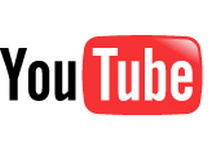 Analysts at comScore believe the Hollywood writer's strike may have already had a measurable affect on viewers. In their report covering online video viewing for December of 2007. According to the organization's monthly report, "nearly 141 million Americans viewed online video in December."
Analysts at comScore believe the Hollywood writer's strike may have already had a measurable affect on viewers. In their report covering online video viewing for December of 2007. According to the organization's monthly report, "nearly 141 million Americans viewed online video in December."
“December represented a considerably strong month for online video viewing,” said Erin Hunter, comScore executive vice president of media and entertainment. “With the writer’s strike keeping new TV episodes from reaching the airwaves, viewers have been seeking alternatives for fresh content. It appears that online video is stepping in to help fill that void.”
As usual, the news was better for YouTube, and parent company Google than for any other site. In fact it's fair to say that due to YouTube, Google is more popular for online video than any ten competing services. In December the search juggernaut continued their dominance, being responsible for delivering nearly a third of all online video to an audience encompassing an estimated 43% of all internet users in the U.S.
Read more...
Written by Rich Fiscus @ 13 Feb 2008 11:22
 In a 80 page filing with the FCC, Comcast attempted to explain why there's nothing wrong with the "network management" practices that spurred a number of complaints to agency regulators. The problem is they're not really offering new facts. While they're finally admitting what was proven several months ago - that they've been tampering with P2P uploads from subscriber computers - rather than offering an explanation that puts the practice in a new legal light the company's official position is still just that they haven't done anything wrong.
In a 80 page filing with the FCC, Comcast attempted to explain why there's nothing wrong with the "network management" practices that spurred a number of complaints to agency regulators. The problem is they're not really offering new facts. While they're finally admitting what was proven several months ago - that they've been tampering with P2P uploads from subscriber computers - rather than offering an explanation that puts the practice in a new legal light the company's official position is still just that they haven't done anything wrong.
"The carefully Limited measures that Comcast takes to manage traffic on its broadband network -- including its very limited management of certain P2P protocols -- are a reasonable part of Comcast's strategy to ensure a high-quality, reliable Internet experience for all Comcast High-Speed Internet customers," read the company's statement. It added that the BitTorrent file-sharing protocol "utilize(s) immense amounts of Bandwidth in ways that are unpredictable and inconsistent and that can threaten to overwhelm network capacity and harm the online experience of other users."
Read more...
Written by Rich Fiscus @ 12 Feb 2008 9:08
 On February 26 the FCC will hold and open hearing at Harvard Law School where commissioners "will hear from expert panelists regarding broadband network management practices," according to an FCC announcement released Tuesday. The hearing will be open to the public.
On February 26 the FCC will hold and open hearing at Harvard Law School where commissioners "will hear from expert panelists regarding broadband network management practices," according to an FCC announcement released Tuesday. The hearing will be open to the public.
The Net Neutrality debate in the U.S. has heated up significantly following allegations of Comcast unfairly, and perhaps illegally, interfering with BitTorrent traffic. Comcast has repeatedly stated that they don't block any applications and that their network management practices are in compliance with the relevant FCC rules, which permit "reasonable traffic management."
"Today's announcement by the FCC of an en banc hearing on broadband network management is a direct reaction to Comcast's improper blocking of competing Internet applications and services," said Mark Erickson, executive director of the Open Internet Coalition, in a statement.
Written by Rich Fiscus @ 12 Feb 2008 8:14
 A wireless device which would use the so-called "white spaces" between broadcast television channels for wireless communication has failed FCC testing.
A wireless device which would use the so-called "white spaces" between broadcast television channels for wireless communication has failed FCC testing.
This is the second test and second failure in seven months. After the first failure a second device was provided. FCC approval of such devices is dependent on proof that they'll be guaranteed not to interfere with television broadcasts.
According to NAB spokesman Dennis Wharton, "This admission by 'white space' proponents vindicates beyond doubt the interference concerns expressed by broadcasters, sports leagues, wireless microphone companies and theater operators." Wharton said. "Completing a successful transition to digital television ought not to be jeopardized by introducing risky technology that has proven to be unworkable."
Advocates for the coalition of companies behind the white space initiative, including Microsoft, Google, Hewlett-Packard, Dell, Intel, and Phillips Electronics, have claimed after both failures that the results weren't valid because the devices weren't functioning properly. However that seems to be a completely relevant circumstance. Interference caused by a malfunctioning device is a legitimate concern for regulators.
Read more...
Written by Rich Fiscus @ 12 Feb 2008 1:58
 It appears like British officials are looking to follow French President Nicolas Sarkozy's lead and consider putting illegal downloaders on warning with a "three strikes" law. The proposed law would result in a warning via email if suspected of illegally downloading movies or music, a temporary suspension of their internet service if a second violation is detected, and termination of their internet service upon a third offense.
It appears like British officials are looking to follow French President Nicolas Sarkozy's lead and consider putting illegal downloaders on warning with a "three strikes" law. The proposed law would result in a warning via email if suspected of illegally downloading movies or music, a temporary suspension of their internet service if a second violation is detected, and termination of their internet service upon a third offense.
Details are expected to be published next week in a Green Paper, which is the first step in the process of changing British law. A draft copy reportedly reads “We will move to legislate to require internet service providers to take action on illegal file-sharing.”
Although no details have been worked out yet on the amount of customer information that would be shared between ISPs, information on alleged offenders is likely to be available to the courts.
Internet providers have been engaged in talks over a voluntary system similar to the one proposed in the Green Paper. However, an agreement has yet to be worked out that satisfies both sides with regard to disputed infringement claims. A spokesman for the Internet Service Providers Association said it remained hopeful that agreement over a voluntary agreement could be reached: “Every right-thinking body knows that self-regulation is much the better option in these areas.”
Read more...
Written by Rich Fiscus @ 12 Feb 2008 12:27
 Apparently nobody has told companies backing HD DVD that the format war is over. According to sales figures leaked to This Week In Consumer Electronics from The NPD Group, Blu-ray standalone players (not including PS3 consoles) are still outselling HD DVD units, but not nearly by the same commanding margin as a few short weeks ago.
Apparently nobody has told companies backing HD DVD that the format war is over. According to sales figures leaked to This Week In Consumer Electronics from The NPD Group, Blu-ray standalone players (not including PS3 consoles) are still outselling HD DVD units, but not nearly by the same commanding margin as a few short weeks ago.
HD DVD sales appeared to be dropping off the radar less than a month ago. However, as Toshiba, Microsoft, and company have regrouped and made a serious promotional push they've at least managed to halt a complete meltdown. According to the leaked NPD figures, the week ending January 26 saw Blu-ray players accounting for 65% of unit sales compared to nearly 90% just two weeks earlier.
According to Ross Rubin of NPD, “It has only been a couple of weeks since the Warner Bros. announcement [of exclusive support for Blu-ray], as well as Toshiba’s price promotions, Microsoft’s lowering the price on its HD DVD Xbox peripheral and the [Toshiba] HD DVD Super Bowl ad. So, the story continues to evolve. The two formats ended 2007 essentially in a dead heat. Until one camp decides to give up its format we are going to continue to see confusion at retail.”
Read more...
Written by Rich Fiscus @ 11 Feb 2008 1:38
 With preparations for the DTV (Digital Television) cutover in the U.S. gaining momentum, many people have already questioned the government's preparedness. Now it appears that at least one of the preparations that has been made is even in question. The FCC may be greatly overestimating the effective range of DTV broadcasts. If that's true there may be millions of Americans who are unable to receive the same selection of channels they're currently getting via analog broadcast.
With preparations for the DTV (Digital Television) cutover in the U.S. gaining momentum, many people have already questioned the government's preparedness. Now it appears that at least one of the preparations that has been made is even in question. The FCC may be greatly overestimating the effective range of DTV broadcasts. If that's true there may be millions of Americans who are unable to receive the same selection of channels they're currently getting via analog broadcast.
The issue is signal degradation. One major advantage of DTV is that the quality is relatively even for everyone who recieves a particular broadcast. The reason for this is that, unlike analog broadcasts, when a digital signal degrades to the point where analog image or sound quality would suffer it simply drops out completely. Rather than getting a lower quality picture you get none at all.
While FCC officials believe most viewers will be able to receive the same channels digitally that they do now, a study from a market research firm in Los Angeles called Centris casts doubt on those claims. According to the Centris study, which claims to be based on a more detailed model than the federal government has been using, the government figures are overly optimistic. Centris claims that nearly 6 million households will need outdoor antennas to keep receiving the same selection of channels they're currently getting.
Read more...
Written by Rich Fiscus @ 11 Feb 2008 11:29
 According to the Associated Press, internet DVD rental leader Netflix has decided to jump on the Blu-ray bandwagon, and will be dropping HD DVD rentals completely.
According to the Associated Press, internet DVD rental leader Netflix has decided to jump on the Blu-ray bandwagon, and will be dropping HD DVD rentals completely.
"From the Netflix perspective, focusing on one format will enable us to create the best experience for subscribers," said a company spokesman, adding that not many customers seem interested in either format yet.
According to Netlix CFO Barry McCarthy, even if you're a Blu-ray fan, the format's "victory" against the rival HD DVD format may not be the good news you were hoping for. Last week he indicated that the company is watching prices closely, saying “If a winner emerges and we experience some margin Compression if a large number of subscribers rent in high-def, we’ll weigh the options of increasing prices.”
Read more...
Written by Rich Fiscus @ 09 Feb 2008 3:01
 Roxio and TiVo are getting heat from customers who are unhappy that file transfers from the popular TiVo DVR to burn to DVD or to Encode for mobile devices using Roxio Toast on OS X haven't worked Right since an October update from TiVo. Roxio product manager Patrick Nugent said his company has been working with TiVo on the issue, but he believes it affects "a small number of users."
Roxio and TiVo are getting heat from customers who are unhappy that file transfers from the popular TiVo DVR to burn to DVD or to Encode for mobile devices using Roxio Toast on OS X haven't worked Right since an October update from TiVo. Roxio product manager Patrick Nugent said his company has been working with TiVo on the issue, but he believes it affects "a small number of users."
"It is important to us that all TiVo subscribers using TiVoToGo receive the same great TiVo experience whether they are utilizing a PC or Mac," read a statement from TiVo to News.com. "It has been brought to our attention that a small subset of customers using Toast 8 have experienced a problem when trying to transfer their shows. We have been working with our partner Roxio and currently have a fix in beta."
Read more...
Written by Rich Fiscus @ 08 Feb 2008 12:25
 After trying out DVD rental kiosks from Redbox in a number of their locations in the U.S. since 2006, Wal-Mart executives are planning to add them to nearly all their stores. Besides providing a low cost way to make DVD rentals available from the world's largest retailer, it will also increase the number of Redbox kiosks deployed by 40%, compared to today.
After trying out DVD rental kiosks from Redbox in a number of their locations in the U.S. since 2006, Wal-Mart executives are planning to add them to nearly all their stores. Besides providing a low cost way to make DVD rentals available from the world's largest retailer, it will also increase the number of Redbox kiosks deployed by 40%, compared to today.
"Wal-Mart is constantly adapting to meet changing customer needs. This year will bring changes to the look of many of our vestibules. Equipment placement will be based on customer demographics and our commitment to ensure we are not interrupting traffic flow into the store,” read a Wal-Mart statement, confirming that it will “shortly begin a rollout to all stores.”
“We just felt it was a perfect fit,” said Christopher Goodrich, a spokesman for Oakbrook Terrace, Ill.-based Redbox. “We’re actually continuing to look at additional partners.”
With the kiosk market expanding rapidly, even more traditional brick and mortar operators like Blockbuster have their eyes on kiosks, although they appear to be focusing more on On-Demand burning, rather than just rentals. However, with the explosion in popularity of Redbox kiosks last year, expect to see more competitors trying to squeeze into this niche market.
Written by Rich Fiscus @ 07 Feb 2008 11:53
 The U.S. Department of Justice (DOJ), which among other things is responsible for enforcing federal antitrust laws, is apparently suspicious of record labels intentions with respect to a new proposed subscription music service tentatively called TotalMusic. The service, originally proposed by Universal Music Group (UMG) CEO Doug Morris, would provide most major label titles for a monthly $5 subscription fee, which Morris has suggested be paid by portable media player manufacturers.
The U.S. Department of Justice (DOJ), which among other things is responsible for enforcing federal antitrust laws, is apparently suspicious of record labels intentions with respect to a new proposed subscription music service tentatively called TotalMusic. The service, originally proposed by Universal Music Group (UMG) CEO Doug Morris, would provide most major label titles for a monthly $5 subscription fee, which Morris has suggested be paid by portable media player manufacturers.
A report in a music industry periodical called MusicAlly indicates that DOJ officials have contacted all four major labels to get more information. What apparently concerns DOJ regulators is the possibility that the labels are actually just trying to put existing online music services, most notably iTunes, out of business. It probably doesn't help any that the idea for TotalMusic surfaced around the same time Morris had a very public falling out with Apple, eventually leading to the company declining to renew the distribution deal between them.
This isn't the first such label backed service that's come under DOJ scrutiny. Before the launch of iTunes, there were two subscription services with label backing - PressPlay and MusicNet - which were similarly investigated, with no evidence found against the labels. One important difference between then and now is that labels are clearly interested in making the most of music downloads, while the earlier case focused on their potential use of the two services as a tool to kill online music entirely.
Written by Rich Fiscus @ 07 Feb 2008 3:10
 As Jamie (Dela) announced last month, the staff here at Afterdawn is working on updating some of our core content in the Glossary. Along with additions like our new Topics feature we're planning a number of improvements to navigating the site and finding basic (and not so basic) help.
As Jamie (Dela) announced last month, the staff here at Afterdawn is working on updating some of our core content in the Glossary. Along with additions like our new Topics feature we're planning a number of improvements to navigating the site and finding basic (and not so basic) help.
I've updated or added some more important Glossary terms. As we continue to update the Glossary (and other areas) we'll be giving regular updates on our progress.
Written by Rich Fiscus @ 07 Feb 2008 1:25
 A company in Isreal called Modu will be partnering with wireless carriers in three different countries to sell a new modular phone design. The phones will consist of a rudimentary phone meant to be used with "jackets" which provide additional functionality like text messaging and music playback.
A company in Isreal called Modu will be partnering with wireless carriers in three different countries to sell a new modular phone design. The phones will consist of a rudimentary phone meant to be used with "jackets" which provide additional functionality like text messaging and music playback.
The core phone unit essentially acts as a peripheral to add a mobile phone connection to the jackets, which will initially just provide standard features like text messaging and cameras. Universal Music Group is reportedly considering using Modu jackets to promote their artists, although no details of their plans are available at this time.
The initial model will be limited to using General Packet Radio Service (GPRS) for data transfer. GPRS is only capable of data transfer at speeds approximately equivalent to a dialup modem. A 3G version, which would be able to make use of the much faster High-Speed Downlink Packet Access (HSDPA) technology, is said to be in the works. According to Modu founder and CEO Dov Moran the 3G version will remain compatible with jackets for first generation phones.
Read more...
Written by Rich Fiscus @ 06 Feb 2008 11:54
 According to Netflix Chief Financial Officer Barry McCarthy, his company's current business strategy is still firmly rooted in DVD technology. Speaking at the Thomas Weisel Partners Technology, Telecom & Internet Conference in San Francisco he talked about some of the reasons Netflix is so sure DVDs are still the most important way to distribute movies.
According to Netflix Chief Financial Officer Barry McCarthy, his company's current business strategy is still firmly rooted in DVD technology. Speaking at the Thomas Weisel Partners Technology, Telecom & Internet Conference in San Francisco he talked about some of the reasons Netflix is so sure DVDs are still the most important way to distribute movies.
“There are 100 million DVD players in U.S. households,” McCarthy said. “If you really think people are going to stop renting DVDs, you need to lie down until that thought passes.”
He also talked about the barriers to establishing a mainstream online video system. He said that the main problem right now is that content needs to be available on a wide range of reasonably priced set-top boxes. He also said it would need to be an "open" system, mentioning Amazon's Unbox service as an example of a current system that's "closed."
He did, however, mention what may be a step from Netflix to open their own Streaming service, called Instant Watching, to Apple users, who are apparently supposed to be able to use the service from their Macs before the end of the year. Until now the (Microsoft) DRM used for the videos has made it incompatible with OS X.
Read more...
Written by Rich Fiscus @ 06 Feb 2008 2:23
 As patent reform legislation makes its way through the U.S. Congress the reaction from EFF activists has been generally positive. However, that may be changing now that they've examined a Senate Judiciary Committee report on the version of the legislation which recently passed the House of Representatives. According to that report, the Patent Reform Act of 2007 changes the rules for third parties like the EFF, making it virtually impossible for them to challenge patents except within the first 12 months after its approval.
As patent reform legislation makes its way through the U.S. Congress the reaction from EFF activists has been generally positive. However, that may be changing now that they've examined a Senate Judiciary Committee report on the version of the legislation which recently passed the House of Representatives. According to that report, the Patent Reform Act of 2007 changes the rules for third parties like the EFF, making it virtually impossible for them to challenge patents except within the first 12 months after its approval.
Currently the EFF's Patent Busting Project is working to get a number of patents nullified, including 1-click online shopping (U.S. Patent No. 5,960,411), online shopping carts (U.S. Patent No. 5,715,314), hyperlinking (U.S. Patent No. 4,873,662.), Streaming video (U.S. Patent No. 5,132,992), and popup windows (U.S. Patent No. 6,389,458). Although many individuals and organizations have spoken out about patent reform in the U.S., the EFF has gone a step further to legal action, wihch appears to be in jeapordy of being halted as the project picks up steam.
Read more...
Written by Rich Fiscus @ 06 Feb 2008 12:10
 According to many music label executives, manufacturers of portable music players should be paying them a cut of profits since their sales are predicated on the availability of recorded music. Unfortunately they don't hold themselves to the same standard they'd like to hold companies like Apple to, as they've shown in a proposal to the U.S. Copyright Royalty Board (CRB) which would reduce songwriter royalties for physical sales (in formats like CD) to $0.06 per song, from the current rate of $0.091. Their proposal would also set download rates at a lower level of up to 5.5 cents per Track, while Streaming would compensate songwriters to the tune of 0.58% (less than 1%) of revenue.
According to many music label executives, manufacturers of portable music players should be paying them a cut of profits since their sales are predicated on the availability of recorded music. Unfortunately they don't hold themselves to the same standard they'd like to hold companies like Apple to, as they've shown in a proposal to the U.S. Copyright Royalty Board (CRB) which would reduce songwriter royalties for physical sales (in formats like CD) to $0.06 per song, from the current rate of $0.091. Their proposal would also set download rates at a lower level of up to 5.5 cents per Track, while Streaming would compensate songwriters to the tune of 0.58% (less than 1%) of revenue.
The songwriters, represented at CRB negotiations by the National Music Publishers' Association (NMPA), are proposing that royalties for physical sales be increased to 12.5 cents per song (twice the labels' proposed rate), with a rate of 15 cents per song for downloaded songs, under the assumption that downloaded music has lower costs for the labels compared to the distribution of physical media like CDs. Their proposal calls for streaming royalties to be set at 12.5% of revenue, 27.5% of content costs, or less than a penny per play as a flat rate.
Read more...
Written by Rich Fiscus @ 05 Feb 2008 11:20
 Yet another defendant in a RIAA file sharing lawsuit has decided to fight back. On behalf of his client Rolando Armurao, who is accused of illegally distribution of more than 500 songs using Limewire P2P software, Richard Altman filed a brief with the U.S. District Court for the Southern District of New York asking that all evidence collected by representatives of Media Sentry be thrown out of court due to the lack of a private investigator's license.
Yet another defendant in a RIAA file sharing lawsuit has decided to fight back. On behalf of his client Rolando Armurao, who is accused of illegally distribution of more than 500 songs using Limewire P2P software, Richard Altman filed a brief with the U.S. District Court for the Southern District of New York asking that all evidence collected by representatives of Media Sentry be thrown out of court due to the lack of a private investigator's license.
"Plaintiffs proceed in these copyright infringement cases based upon evidence of file-sharing or distribution derived from investigations conducted by Safenet, Inc., a private company operating under the name of Media Sentry," Altman's motion stated. Media Sentry is paid by record labels to find file sharers violating music industry copyrights and get enough information for RIAA lawyers to initiate court cases.
Altman told Computerworld that New York state law there are only a few circumstances where such evidence gathering doesn't require a license, and that the RIAA cases don't fall into the category of an exception. "This is a private company. So I've asked their evidence be excluded," he said
Read more...
Written by Rich Fiscus @ 04 Feb 2008 10:44
 Cablevision is now offering an upgrade to their standard Video On Demand (VOD) service that will allow quicker access to movies, while also selling DVDs. Under the terms of Cablevision's partnership with Popcorn Home Entertainment, the cable provider's New York customers get access to titles the same day they're released on DVD.
Cablevision is now offering an upgrade to their standard Video On Demand (VOD) service that will allow quicker access to movies, while also selling DVDs. Under the terms of Cablevision's partnership with Popcorn Home Entertainment, the cable provider's New York customers get access to titles the same day they're released on DVD.
The catch? You must also buy a copy of the DVD, which will be delvered several days later. The VOD movies must be watched within the standard 24 hour window.
Popcorn Home Entertainment is headed by former CEO of VOD provider In Demand, Steve Brenner, who notes that the only time the studios have any interest in reducing (or eliminating) the wait between DVD release and VOD offering is when its tied directly to DVD sales. “At In Demand, we tried to get windows moved up, but the studios do so much better selling DVDs,” Brenner said. “This is nicely positioned to do what’s good for them and good for cable.”
Written by Rich Fiscus @ 04 Feb 2008 1:21
 If you're concerned about the possible effects of a Microsoft buyout of one-time internet search leader Yahoo, you're not alone. In fact, it seems that Yahoo executives may feel the same way - kind of.
If you're concerned about the possible effects of a Microsoft buyout of one-time internet search leader Yahoo, you're not alone. In fact, it seems that Yahoo executives may feel the same way - kind of.
Unnamed sources at Yahoo have indicated that company management is considering re-opening talks they had just a few months ago with current search frontrunner Google. The talks were intended to forge a partnership of some sort between the two companies, which some in management are apparently considering again in order to fend off Microsoft's advances. With monopoly considerations making them nothing more than a spectator in the entire affair, it seems like obvious that Google would jump at the chance to put a halt to Microsoft's plan to expand right into their backyard.
The same unnamed sources aren't going so far as to suggest that a Yahoo-Google partnership is likely, or that others may not be interested in buying Yahoo (although no obvious companies come to mind). In fact it's possible that they're just hoping to force Microsoft to raise their bid because they feel the initial offer is too low. Meanhwhile, some in the investment world have suggested that Microsoft's offer isn't likely to be their final one, but rather that it's just high enough for Yahoo shareholders to get excited, forcing mangement to give their own appraisal of the company's worth.
Read more...
Written by Rich Fiscus @ 02 Feb 2008 10:50
 Netflix has announced a plan to buy back $100 million in stock by the end of the year. After the company endured their first real competition ever when Blockbuster was seen as a serious competitor, and even managed to take some customers from the leader in online DVD rental. However, with Blockbuster appointing a new CEO whose focus on profitability has changed that company's focus from beating Netflix to entering the kiosk market Netflix has seemingly had no problem luring customers back, resulting in higher earnings for the fourth quarter of last year.
Netflix has announced a plan to buy back $100 million in stock by the end of the year. After the company endured their first real competition ever when Blockbuster was seen as a serious competitor, and even managed to take some customers from the leader in online DVD rental. However, with Blockbuster appointing a new CEO whose focus on profitability has changed that company's focus from beating Netflix to entering the kiosk market Netflix has seemingly had no problem luring customers back, resulting in higher earnings for the fourth quarter of last year.
With the U.S. economy looking ready for a full blown recession at any time it seems like an obvious time for Netflix to make such a move. Even many companies reporting good to excellent earnings have faced the wrath of shareholders who aren't happy with relatively low sales forecasts. If Netflix's stock price becomes another casualty of shareholder dissatisfaction it would be a perfect opportunity for the company to put their increased profits from last year to good use.
Read more...
Written by Rich Fiscus @ 02 Feb 2008 10:22
 The Committee on Energy and Commerce for the U.S. House of Representatives has announced a hearing regarding the upcoming DTV (digital television) transition. The hearing will be held on February 13, just over a year before analog signals are scheduled to disappear from U.S. airwaves. Not to be outdone, the U.S. Senate Committee on Commerce, Science, and Transportation will be holding a hearing of their own the next day.
The Committee on Energy and Commerce for the U.S. House of Representatives has announced a hearing regarding the upcoming DTV (digital television) transition. The hearing will be held on February 13, just over a year before analog signals are scheduled to disappear from U.S. airwaves. Not to be outdone, the U.S. Senate Committee on Commerce, Science, and Transportation will be holding a hearing of their own the next day.
"As part of our ongoing oversight of the DTV transition process, this hearing will be a key opportunity to check-in on the various aspects of the transition, which is so important for public safety, economic growth, innovation, consumer welfare, and the future of television itself. With just a year to go, we want this transition to be as smooth as possible for American consumers,” said Rep. Edward J. Markey (D-MA), Chairman of the Subcommittee on Telecommunications and the Internet.
The problem is that everyone in the government already seems to have a pretty good idea where things stand right now, or if they don't it's not for a lack of available information. The Government Accountability Office (GAO) has issued more than one report indicating that government agencies have done a horrible job of preparing the public for the 2009 transition, and in in one report even went so far as to suggest that the FCC doesn't have so much as a single benchmark in place to figure out whether the process is on track or not.
Read more...
Written by Rich Fiscus @ 02 Feb 2008 3:13
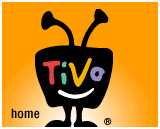 On Thursday TiVo won a major appeals court battle that may give them more leverage in licensing their software to cable and satellite providers. The ruling, upholding a lower court decision that Dish Network DVRs violate their software patents, may mean that other DVR providers have to either pay up for licensing or work TiVo's product into the DVRs they provide customers.
On Thursday TiVo won a major appeals court battle that may give them more leverage in licensing their software to cable and satellite providers. The ruling, upholding a lower court decision that Dish Network DVRs violate their software patents, may mean that other DVR providers have to either pay up for licensing or work TiVo's product into the DVRs they provide customers.
TiVo is certainly the best known DVR brand among consumers, who often refer to the very act of DVR Capture as 'TiVo-ing' a program. But the company's financial fortunes currently seem tied to their capability to sell cable and satellite television providers their product. They've recently started widescale testing of a port of the TiVo interface to existing Comcast DVRs.
With Thursday's decision, the company appears to be in a strong position to secure partnerships with other DVR providers. Meanwhile Dish DVR customers shouldn't have to worry about the fallout. According to a company spokesman they've already been migrated to software that doesn't violate any TiVo patents.
Written by Rich Fiscus @ 02 Feb 2008 2:35
 The BBC has finally gotten their iPlayer to work with software not developed byMicrosoft. It's not a competitor's operating system, however, but rather the Firefox web browser. So while the BBC's video download service, intended to act as a sort of free DVR for people paying the licence fee that keeps the network on the air, no longer requires Internet Explorer, it does still need Windows for its DRM.
The BBC has finally gotten their iPlayer to work with software not developed byMicrosoft. It's not a competitor's operating system, however, but rather the Firefox web browser. So while the BBC's video download service, intended to act as a sort of free DVR for people paying the licence fee that keeps the network on the air, no longer requires Internet Explorer, it does still need Windows for its DRM.
While this may not sound like an important enough milestone to get too worked up over, based on statements from Anthony Rose, who took over responsibility for the iPlayer's development in September, "It's good because it's the first real non-Microsoft thing we've been able to do with the download iPlayer."
He also indicates that the long wait for Firefox support isn't actually the BBC's fault. According to Rose the problem was the client provided by Verisign, and the BBC was forced to write their own client from scratch to make it work.
Read more...
Written by Rich Fiscus @ 02 Feb 2008 2:03
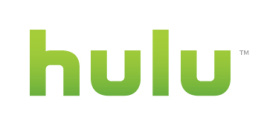 With the Super Bowl coming up in less than a week,a number of people are making plans to watch just to see the entertainment during commercial breaks. Every year the commercials are nearly an event to themselves, with each sponsor trying to attract enough attention to be the center of attention around the water cooler Monday morning.
With the Super Bowl coming up in less than a week,a number of people are making plans to watch just to see the entertainment during commercial breaks. Every year the commercials are nearly an event to themselves, with each sponsor trying to attract enough attention to be the center of attention around the water cooler Monday morning.
So what if you don't care about the game and can't be bothered to sit through it hoping to see the next legendary ad? You could record it on your DVR and skip from one commercial break to the next, or you could just wait until Monday and watch them on Hulu, where every one be posted to the company's official blog.
Although Hulu is currently in private beta, the blog can be read by anyone stopping by, making the commercial replays available to the public as well. If a new advertising legend, like Apple's now famous 1984 introduction for the Mac, is born during this year's big game it could be Hulu's big chance to enter the public consciousness.

 It's time again for my weekly Glossary updates. This week's highlights include some things you may already have on your computer, such as libavcodec and MPEG-4 encoders. If you're not already familiar with libavcodec I recommend starting there. It has become one of the cornerstones of software media players, and has even become a viable option for encoding video.
It's time again for my weekly Glossary updates. This week's highlights include some things you may already have on your computer, such as libavcodec and MPEG-4 encoders. If you're not already familiar with libavcodec I recommend starting there. It has become one of the cornerstones of software media players, and has even become a viable option for encoding video.

 Although they're not saying yet, it appears that Apple's strategy to meet their lofty sales goal of 10 million iPhones (from launch to the end of this year)
Although they're not saying yet, it appears that Apple's strategy to meet their lofty sales goal of 10 million iPhones (from launch to the end of this year)  After some market tests
After some market tests  You have to give it to Comcast. They're nothing if not consistent. When they've been asked to reveal specifics of their controversial "network management" techniques that have BitTorrent using customers up in arms they really didn't want to talk about it. Now, as if to emphasize that point, they've found a way to control attendance of a FCC hearing that was open to the public.
You have to give it to Comcast. They're nothing if not consistent. When they've been asked to reveal specifics of their controversial "network management" techniques that have BitTorrent using customers up in arms they really didn't want to talk about it. Now, as if to emphasize that point, they've found a way to control attendance of a FCC hearing that was open to the public.
 According to
According to  DivX, Inc., developers of the
DivX, Inc., developers of the  Universal Music Netherlands
Universal Music Netherlands  FCC Chairman Kevin Martin
FCC Chairman Kevin Martin  ABC executives have managed to convince themselves that viewers really don't care about fast forwarding, or at least that's the official company line, as voiced by Anne Sweeney, the president of the Disney-ABC television group. She was speaking about a new Video On Demand venture the Disney owned network is initiating with the cooperation of affiliate stations and cable carrier Cox Communications which will disable the fast forward capabilities normally associated with on demand offerings.
ABC executives have managed to convince themselves that viewers really don't care about fast forwarding, or at least that's the official company line, as voiced by Anne Sweeney, the president of the Disney-ABC television group. She was speaking about a new Video On Demand venture the Disney owned network is initiating with the cooperation of affiliate stations and cable carrier Cox Communications which will disable the fast forward capabilities normally associated with on demand offerings.
 As flat panel TV sales continue to increase and LCD continues to grab an increasing amount of market share, some manufacturers have shifted their focus away from plasma HDTVs. One company that hasn't wavered in their support for plasma technology is Pioneer. Less than two months ago, at
As flat panel TV sales continue to increase and LCD continues to grab an increasing amount of market share, some manufacturers have shifted their focus away from plasma HDTVs. One company that hasn't wavered in their support for plasma technology is Pioneer. Less than two months ago, at  If you'd like a ringside seat to a FCC hearing on ISP network management and happen to be in the Boston area on Monday you're in luck. There's
If you'd like a ringside seat to a FCC hearing on ISP network management and happen to be in the Boston area on Monday you're in luck. There's  Japan may have taken a long time getting into the space race, but they're quickly making up for lost time. Powered by a rocket designed and built in Japan, they've launched a new satellite which they hope will be able to provide digital television (DTV) and high speed internet to remote areas of the country, as well as serving customers in other parts of Southeast Asia.
Japan may have taken a long time getting into the space race, but they're quickly making up for lost time. Powered by a rocket designed and built in Japan, they've launched a new satellite which they hope will be able to provide digital television (DTV) and high speed internet to remote areas of the country, as well as serving customers in other parts of Southeast Asia.
 We reported yesterday that CBS
We reported yesterday that CBS  With new technology and ways to deliver video being introduced at breakneck speed, one thing most entertainment executives will admit to is that nobody knows anything for sure. To date no one has been able to reach any definite conclusions about how consumers actually respond to the range of offerings from
With new technology and ways to deliver video being introduced at breakneck speed, one thing most entertainment executives will admit to is that nobody knows anything for sure. To date no one has been able to reach any definite conclusions about how consumers actually respond to the range of offerings from  Visitors to the American CBS website are now able to stream not just a current shows on the network, but also a selection of classic shows including the first season of 'MacGyver,' 'Melrose Place' and 'Hawaii Five-0', the first two seasons of 'The Twilight Zone', and all three seasons of the original 'Star Trek'. While it's not the first time older TV shows have been available for
Visitors to the American CBS website are now able to stream not just a current shows on the network, but also a selection of classic shows including the first season of 'MacGyver,' 'Melrose Place' and 'Hawaii Five-0', the first two seasons of 'The Twilight Zone', and all three seasons of the original 'Star Trek'. While it's not the first time older TV shows have been available for  It turns out the British government isn't actually
It turns out the British government isn't actually 
 the Japan Electronics and Information Technology Association (JEITA)
the Japan Electronics and Information Technology Association (JEITA)  Pretend you're a representative for the
Pretend you're a representative for the  Sales of LCD televisions have hit a milestone, becoming
Sales of LCD televisions have hit a milestone, becoming  The New Release (TNR), a Houston-based company, plans to add 1,000 of their Moviecube
The New Release (TNR), a Houston-based company, plans to add 1,000 of their Moviecube  San Francisco based doubleTwist launched a new service today for transferring digital media between a variety of devices, including computers, portable media players, and mobile phones. The software starts with the basic information to interact with different devices. When you connect a supported media player, media player, or mobile phone to your computer, software called doubleTwist Desktop can retrieve whatever files you'd like, as well as transferring media files from your computer to the device.
San Francisco based doubleTwist launched a new service today for transferring digital media between a variety of devices, including computers, portable media players, and mobile phones. The software starts with the basic information to interact with different devices. When you connect a supported media player, media player, or mobile phone to your computer, software called doubleTwist Desktop can retrieve whatever files you'd like, as well as transferring media files from your computer to the device.
 Anyone who read the
Anyone who read the  It was only a matter of time before the BitTorrent community decided to take on the "network management" practices of ISPs like Comcast.
It was only a matter of time before the BitTorrent community decided to take on the "network management" practices of ISPs like Comcast.  Much like songwriter and Congressman Sonny Bono did in the U.S. several years ago, EU Commissioner Charlie McCreevy is
Much like songwriter and Congressman Sonny Bono did in the U.S. several years ago, EU Commissioner Charlie McCreevy is  If you live in the U.S. and have a TV with only an old fashioned analog TV you have just a year before your TV will no longer be able to receive
If you live in the U.S. and have a TV with only an old fashioned analog TV you have just a year before your TV will no longer be able to receive  Reuters is reporting that
Reuters is reporting that  When analog TV broadcasts are shut off for good in the U.S. in almost exactly 1 year (Februrary 17, 2009) some people with analog televisions will be using their new
When analog TV broadcasts are shut off for good in the U.S. in almost exactly 1 year (Februrary 17, 2009) some people with analog televisions will be using their new  Brick and mortar retailer Borders is hoping to be competitive with online stores like Amazon.com by introducing a new type of store designed to appeal to consumers accustomed to getting what they want when they want it. In addition to the standard assortment of books, CDs, DVDs, and other traditional media, the stores will feature a Digital Center.
Brick and mortar retailer Borders is hoping to be competitive with online stores like Amazon.com by introducing a new type of store designed to appeal to consumers accustomed to getting what they want when they want it. In addition to the standard assortment of books, CDs, DVDs, and other traditional media, the stores will feature a Digital Center.
 Analysts at comScore believe the Hollywood writer's strike may have already had a measurable affect on viewers. In their report covering online video viewing for December of 2007. According to
Analysts at comScore believe the Hollywood writer's strike may have already had a measurable affect on viewers. In their report covering online video viewing for December of 2007. According to 
 Roxio and TiVo are getting heat from customers who are unhappy that file transfers from the popular TiVo
Roxio and TiVo are getting heat from customers who are unhappy that file transfers from the popular TiVo  The U.S. Department of Justice (DOJ), which among other things is responsible for enforcing federal antitrust laws, is apparently suspicious of record labels intentions with respect to a new proposed subscription music service tentatively called TotalMusic. The service, originally proposed by Universal Music Group (UMG) CEO Doug Morris, would provide most major label titles for a monthly $5 subscription fee, which Morris has suggested be paid by portable media player manufacturers.
The U.S. Department of Justice (DOJ), which among other things is responsible for enforcing federal antitrust laws, is apparently suspicious of record labels intentions with respect to a new proposed subscription music service tentatively called TotalMusic. The service, originally proposed by Universal Music Group (UMG) CEO Doug Morris, would provide most major label titles for a monthly $5 subscription fee, which Morris has suggested be paid by portable media player manufacturers.
 A company in Isreal called Modu will be partnering with wireless carriers
A company in Isreal called Modu will be partnering with wireless carriers  As patent reform legislation makes its way through the U.S. Congress the reaction from
As patent reform legislation makes its way through the U.S. Congress the reaction from  According to many music label executives, manufacturers of portable music players should be paying them a cut of profits since their sales are predicated on the availability of recorded music. Unfortunately they don't hold themselves to the same standard they'd like to hold companies like Apple to, as they've shown in a proposal to the U.S. Copyright Royalty Board (CRB) which would reduce songwriter royalties for physical sales (in formats like CD) to $0.06 per song, from the current rate of $0.091. Their proposal would also set download rates at a lower level of up to 5.5 cents per
According to many music label executives, manufacturers of portable music players should be paying them a cut of profits since their sales are predicated on the availability of recorded music. Unfortunately they don't hold themselves to the same standard they'd like to hold companies like Apple to, as they've shown in a proposal to the U.S. Copyright Royalty Board (CRB) which would reduce songwriter royalties for physical sales (in formats like CD) to $0.06 per song, from the current rate of $0.091. Their proposal would also set download rates at a lower level of up to 5.5 cents per  Cablevision is
Cablevision is  If you're concerned about the possible effects of a
If you're concerned about the possible effects of a  The Committee on Energy and Commerce for the U.S. House of Representatives has
The Committee on Energy and Commerce for the U.S. House of Representatives has  On Thursday TiVo won a major
On Thursday TiVo won a major  The BBC has finally gotten their iPlayer to
The BBC has finally gotten their iPlayer to  With the Super Bowl coming up in less than a week,a number of people are making plans to watch just to see the entertainment during commercial breaks. Every year the commercials are nearly an event to themselves, with each sponsor trying to attract enough attention to be the center of attention around the water cooler Monday morning.
With the Super Bowl coming up in less than a week,a number of people are making plans to watch just to see the entertainment during commercial breaks. Every year the commercials are nearly an event to themselves, with each sponsor trying to attract enough attention to be the center of attention around the water cooler Monday morning.







